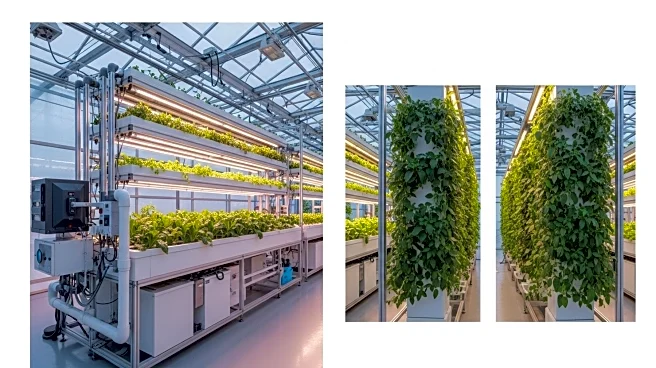What is the story about?
What's Happening?
Smart cities are increasingly integrating advanced technologies to revolutionize urban agriculture and food systems. By 2025, over 60% of smart cities are expected to adopt precision farming technologies, including IoT sensors, AI, and autonomous machinery. These technologies optimize food production, minimize environmental impact, and enhance supply resilience. Urban agriculture in smart cities involves vertical farms, rooftop gardens, and hydroponic systems, supported by blockchain for traceability and smart irrigation systems. The integration of these technologies aims to create resilient, efficient, and environmentally sustainable urban food systems, addressing challenges such as climate volatility and resource scarcity.
Why It's Important?
The adoption of smart agriculture technologies in urban settings is crucial for addressing the growing demand for sustainable food production amid rapid urbanization. By enhancing food security and reducing food miles, smart cities can improve urban sustainability and resilience. The use of IoT and AI in agriculture allows for precise monitoring and management, reducing resource wastage and environmental impact. This shift towards localized and sustainable food systems is essential for meeting the needs of urban populations and supporting global sustainability goals.
What's Next?
As smart cities continue to evolve, further advancements in urban agriculture technologies are expected. The integration of renewable energy sources and digital platforms will enhance the efficiency and sustainability of urban food systems. Collaboration between stakeholders, including farmers, urban planners, and governments, will be key to overcoming challenges such as infrastructure costs and data privacy. The ongoing development of smart city frameworks will likely lead to more inclusive and scalable food solutions, paving the way for sustainable urban living.















